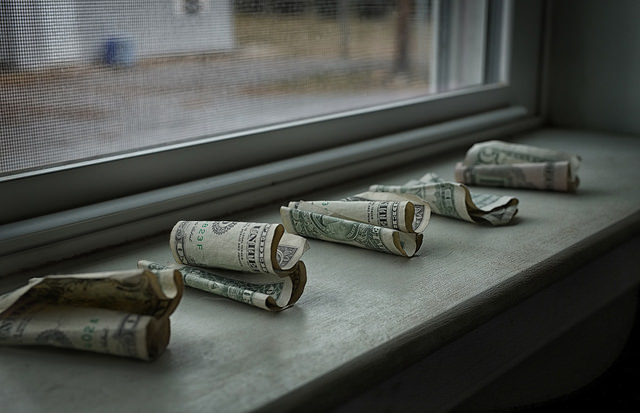Photo: Ted Van Pelt, CC BY 2.0
If you know me, you know I love a good meta-analysis. And a recent one shows that if you give poor people money, they actually seem to consume either the same amount or less tobacco and alcohol. So I thought I’d talk about that.
The study, which I discovered thanks to a brief quartz article yesterday, is called Cash Transfers and Temptation Goods. It’s by David K. Evans of the World Bank and Anna Popova, a PhD candidate at Stanford University, and it was released November 29. The met-analysis looked at 19 studies of the spending habits of poor people in low- and middle-income countries (as defined by the World Bank) when given either CCTs (conditional cash transfers, which means they have to do something nominal in exchange, like send their kids to school) or UCTs (unconditional cash transfers, which means what it sounds like: free money for the poor). The studies ranged from 1997 to 2014.
Now, if you ask most cantankerous old white people in America (at least the ones I’ve met), they’ll tell you that if you give poor people cash it’ll go to waste on cigarettes, drugs, and booze. Studies have long shown in North America, however, that if anything, the lower your household income, the less you spend on those things. Take these data from the Bureau of Labor Statistics’ “Consumer Expenditures in 2012” report:
After the first column, which is the average, you can see that in each quintile, from lowest to highest, the amount spent on alcohol is a lower percentage of the total household pre-tax income. In the US, the more you have, the more of what you have you spend on alcohol.
But this doesn’t capture non-US countries, so there’s always room for more data. And boy does this study provide!
They examined the estimated impacts on spending on “temptation” goods (“primarily alcohol and tobacco”) from 19 studies for negative or positive impacts, and determined whether they were statistically significant or not. Out of 44 estimates, 12 showed a negative and significant result, 24 negative and insignificant, 6 positive and insignificant, and 2 positive and significant. Upon closer inspection, however, those two positive/significant results were countered by other, more significant results within the same studies.
We don’t have to spin this in a positive light if we don’t want to. There’s enough wiggle room that you might still be able to say, confidently, that when you give poor people cash, they’ll spend at least some of it on alcohol or tobacco, and maybe the same amount as before. That’s what the US numbers suggest, too.
Poor people still drink and smoke, after all, just less so than you do.
If that’s a deal breaker for you, well, I just hope you don’t drink or smoke, because unless you don’t take tax exemptions when they’re offered, don’t need firefighters or police, or roads and infrastructure, or public transportation, or medicare, or military protection (and so on), then you sure as hell let the government spend money on you.
And anyway, there’s a good chance that, for the desperately poor, if you give them cash, they might actually spend less of it on smoking and drinking than before.
Maybe because they’ve got a little hope.
You can read the Quartz piece here, find the BLS report here, and if you’ve got access behind that paywall you can find the study here.
***
Thanks for reading! Except for the very *very* occasional tip (we take Venmo now!), I only get paid in my own (and your) enthusiasm, so please like This Week In Tomorrow on Facebook, follow me on Twitter @TWITomorrow, and tell your friends about the site!
If you like our posts and want to support our site, please share it with others, on Facebook, Twitter, Reddit — anywhere you think people might want to read what we’ve written. If there’s something you think we’ve missed or a story you’d like to see covered, drop us a line! Thanks so much for reading, and have a great week.
***
Richard Ford Burley is a human, writer, and doctoral candidate at Boston College, as well as an editor at Ledger, the first academic journal devoted to Bitcoin and other cryptocurrencies. In his spare time he writes about science, skepticism, feminism, and futurism here at This Week In Tomorrow.


